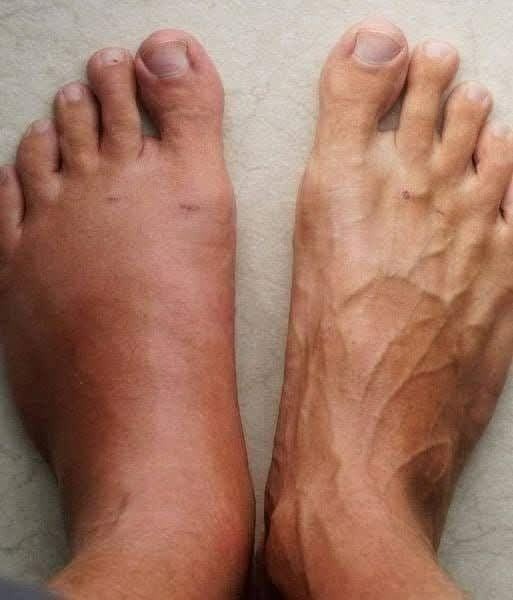
Heart disease is the leading cause of death in the United States — yet many heart attacks could be prevented with earlier awareness.
While your body won’t send a text message saying “Your heart is at risk,” it often gives subtle signals — weeks or even months before a cardiac event.
The problem?
These signs are easily mistaken for stress, aging, poor sleep, or indigestion.
Let’s explore the real, science-backed early warning signs of heart trouble — so you can recognize them, respond wisely, and protect your most vital organ.
Because real health isn’t about waiting for pain.
It’s about listening before the storm hits.
Why Heart Disease Is So Silent
Heart disease — especially coronary artery disease (CAD) — develops slowly over years.
Plaque builds up in your arteries, gradually restricting blood flow to your heart muscle.
At first, there’s no pain.
No alarm bells.
Just quiet changes that go unnoticed… until they can’t be ignored.
That’s why prevention starts long before symptoms appear.
⚠️ 8 Early Warning Signs of Heart Disease
1. Unexplained Fatigue (Especially in Women)
Feeling exhausted after light activity
Needing to nap frequently despite good sleep
Common in women months before a heart attack
Why? Reduced blood flow means less oxygen to muscles and brain.
2. Shortness of Breath During Normal Activities
Getting winded climbing stairs or walking short distances
Difficulty catching your breath when lying flat
May improve when sitting up
Not always linked to lung issues — could be early heart failure.
3. Chest Discomfort That Comes and Goes
Not always crushing pain — often:
Pressure, tightness, or heaviness in the center of the chest
Lasts more than a few minutes or comes back
Triggered by exertion, stress, or cold weather
✅ Even mild discomfort should be taken seriously.
4. Pain or Discomfort in Other Areas
Heart pain doesn’t always stay in the chest. Watch for:
Jaw, neck, or throat pain
Left shoulder, arm, or hand ache
Upper back or stomach discomfort
⚠️ Especially common in women, older adults, and people with diabetes.
5. Swelling (Edema) in Legs, Ankles, or Feet
Puffiness that leaves an indentation when pressed
Worsens by the end of the day
May indicate fluid buildup from weakened heart function
Can also be caused by kidney or vein issues — but heart-related swelling needs evaluation.
6. Irregular Heartbeat (Palpitations)
Skipped beats, fluttering, or racing heart
Lasts seconds to minutes
May be linked to arrhythmias like atrial fibrillation
If frequent or paired with dizziness, see a doctor.
7. Dizziness or Lightheadedness
Feeling faint during activity
Sudden dizziness when standing
Could signal poor circulation or irregular rhythm
Don’t dismiss it as “just low blood pressure.”
8. Sleep Disturbances & Nighttime Breathing Issues
Waking up gasping for air
Frequent nighttime urination (nocturia)
New or worsening snoring (possible sleep apnea link)
Poor sleep quality is both a symptom and a risk factor for heart disease.
✅ Who Should Be Extra Cautious?
✅ Age over 45 (men) or 55 (women)
Risk increases with age
✅ Family history of early heart disease
Genetics play a strong role
✅ High blood pressure or cholesterol
Major contributors to plaque buildup
✅ Diabetes or prediabetes
Damages blood vessels over time
✅ Smoking or vaping
Narrows arteries and raises heart rate
✅ Sedentary lifestyle
Reduces cardiovascular fitness
Talk to your doctor about your 10-year heart disease risk score — tools like the ASCVD calculator can guide prevention.
How Doctors Diagnose Early Heart Disease
If you’re experiencing symptoms, your provider may recommend:
✅ Blood tests
Cholesterol, blood sugar, inflammation markers (like hs-CRP)
✅ Electrocardiogram (ECG/EKG)
Heart rhythm and electrical activity
✅ Echocardiogram
Heart structure and pumping strength
✅ Stress test
How your heart performs under exertion
✅ Coronary calcium scan
Detects plaque in arteries (for select patients)
Early detection saves lives — don’t wait for a crisis.
❌ Debunking the Myths
❌ “Only older men get heart disease”
False — it’s the #1 killer of women too
❌ “If I feel fine, my heart is healthy”
Dangerous myth — silent progression is common
❌ “Heart attacks always come with chest pain”
No — 1 in 5 heart attacks are “silent”
❌ “I’m too young to worry”
Rising rates in adults under 50 due to poor diet, obesity, and stress
✅ Real Ways to Support Heart Health
You don’t need perfection — just consistency.
Eat more plants
Fruits, veggies, legumes, whole grains — rich in fiber and antioxidants
Move daily
Just 30 mins of brisk walking lowers risk
Manage stress
Chronic stress raises cortisol and inflammation
Quit smoking
Within 1 year, heart disease risk drops by half
Know your numbers
BP, cholesterol, blood sugar — track them annually
️ Pro Tip: Try the Mediterranean diet — proven to reduce heart attacks and strokes.
Final Thoughts
You don’t need to wait for a diagnosis to take care of your heart.
So if you’re feeling tired, out of breath, or just “off”…
don’t brush it off.
Listen.
Ask questions.
See your doctor.
Because real strength isn’t about ignoring symptoms.
It’s about protecting your future — one heartbeat at a time.
And that kind of courage?
It beats louder than any alarm ever could.